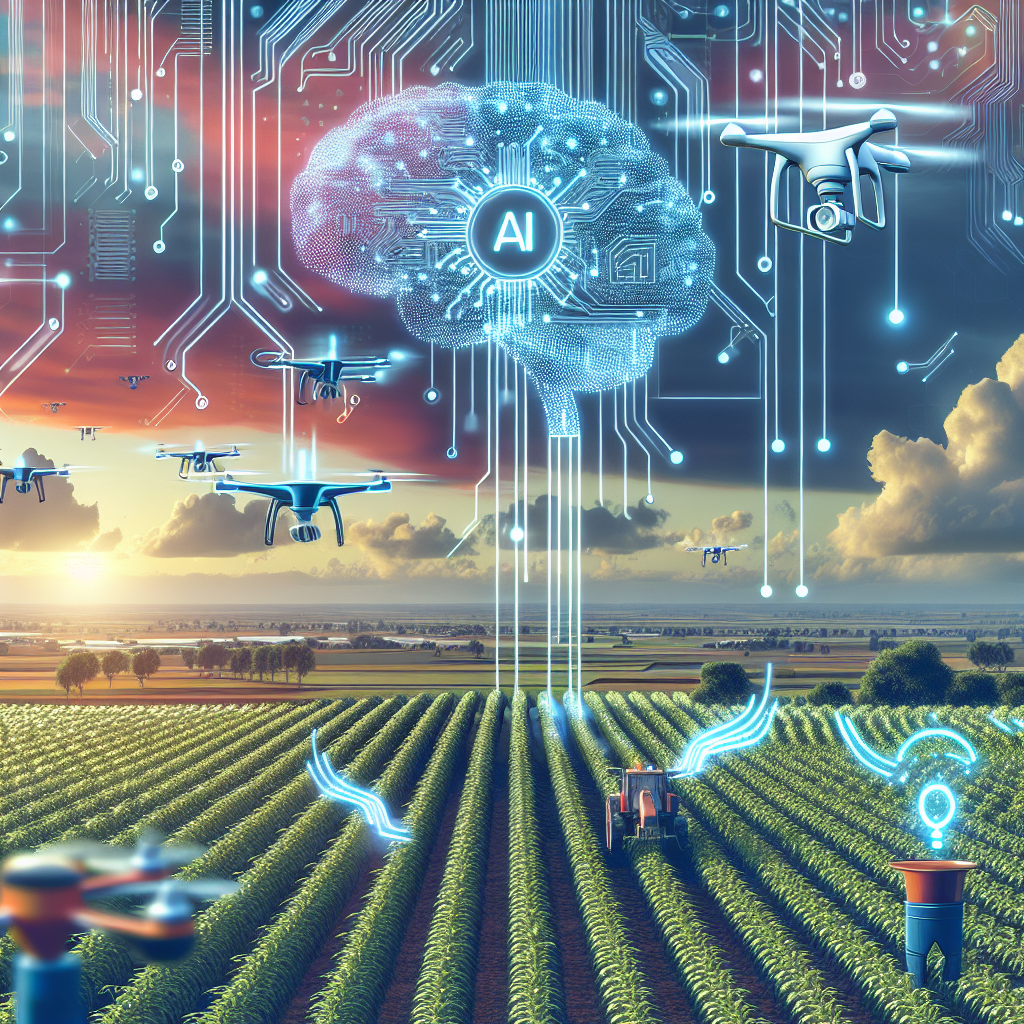Advancements in AI Technology for Crop Prediction and Forecasting
In recent years, the agriculture industry has seen significant advancements in the use of artificial intelligence (AI) technology for crop prediction and forecasting. These advancements have revolutionized the way farmers plan and manage their crops, leading to increased productivity and efficiency. AI technology has the potential to transform the agricultural sector by providing farmers with accurate predictions and insights that can help them make informed decisions about planting, harvesting, and managing their crops.
One of the key areas where AI technology is making a significant impact is in crop prediction and forecasting. By analyzing vast amounts of data, including satellite imagery, weather patterns, soil conditions, and historical crop yields, AI algorithms can predict with a high degree of accuracy how crops will perform in a given region. This information is invaluable to farmers, as it allows them to make informed decisions about when to plant, fertilize, irrigate, and harvest their crops.
AI technology is also being used to create predictive models that can forecast crop yields months in advance. By analyzing historical data and current conditions, these models can provide farmers with estimates of how much yield they can expect from their crops. This information is crucial for planning and budgeting, as it allows farmers to make adjustments to their operations in order to maximize their yield and profitability.
Another area where AI technology is making a significant impact is in pest and disease management. By analyzing data from sensors, drones, and other sources, AI algorithms can detect early signs of pest infestations and diseases, allowing farmers to take action before they spread and cause significant damage to their crops. This proactive approach can help farmers reduce the need for chemical pesticides and protect their crops from damage, leading to higher yields and healthier produce.
In addition to crop prediction and pest management, AI technology is also being used to optimize irrigation and fertilizer applications. By analyzing data on soil moisture levels, weather patterns, and crop water requirements, AI algorithms can recommend the optimal timing and amount of irrigation and fertilization needed to maximize crop yields. This precision agriculture approach not only helps farmers save water and reduce fertilizer usage, but also improves the overall health and quality of their crops.
Overall, the advancements in AI technology for crop prediction and forecasting are revolutionizing the way farmers plan and manage their crops. By providing accurate predictions and insights, AI algorithms can help farmers make informed decisions that lead to higher yields, lower costs, and healthier crops. As the technology continues to evolve, we can expect to see even more innovations that will further transform the agricultural sector and help farmers adapt to the challenges of a changing climate and growing population.
FAQs
Q: How accurate are AI predictions for crop yields?
A: AI predictions for crop yields can be highly accurate, especially when trained on large datasets and validated against real-world data. However, the accuracy of predictions can vary depending on the quality of the data and the complexity of the model used.
Q: Can AI technology replace traditional farming methods?
A: While AI technology can greatly enhance traditional farming methods, it is unlikely to completely replace them. Farmers will always play a crucial role in managing their crops and making decisions based on their expertise and experience.
Q: How can farmers access AI technology for crop prediction and forecasting?
A: There are a growing number of companies and startups that offer AI solutions for crop prediction and forecasting. Farmers can access these technologies through software platforms, mobile apps, and consulting services.
Q: Are there any ethical concerns associated with the use of AI technology in agriculture?
A: As with any technology, there are ethical concerns to consider when using AI in agriculture. These may include issues related to data privacy, algorithm bias, and the impact on traditional farming practices. It is important for farmers and policymakers to address these concerns and ensure that AI technology is used responsibly and ethically.

